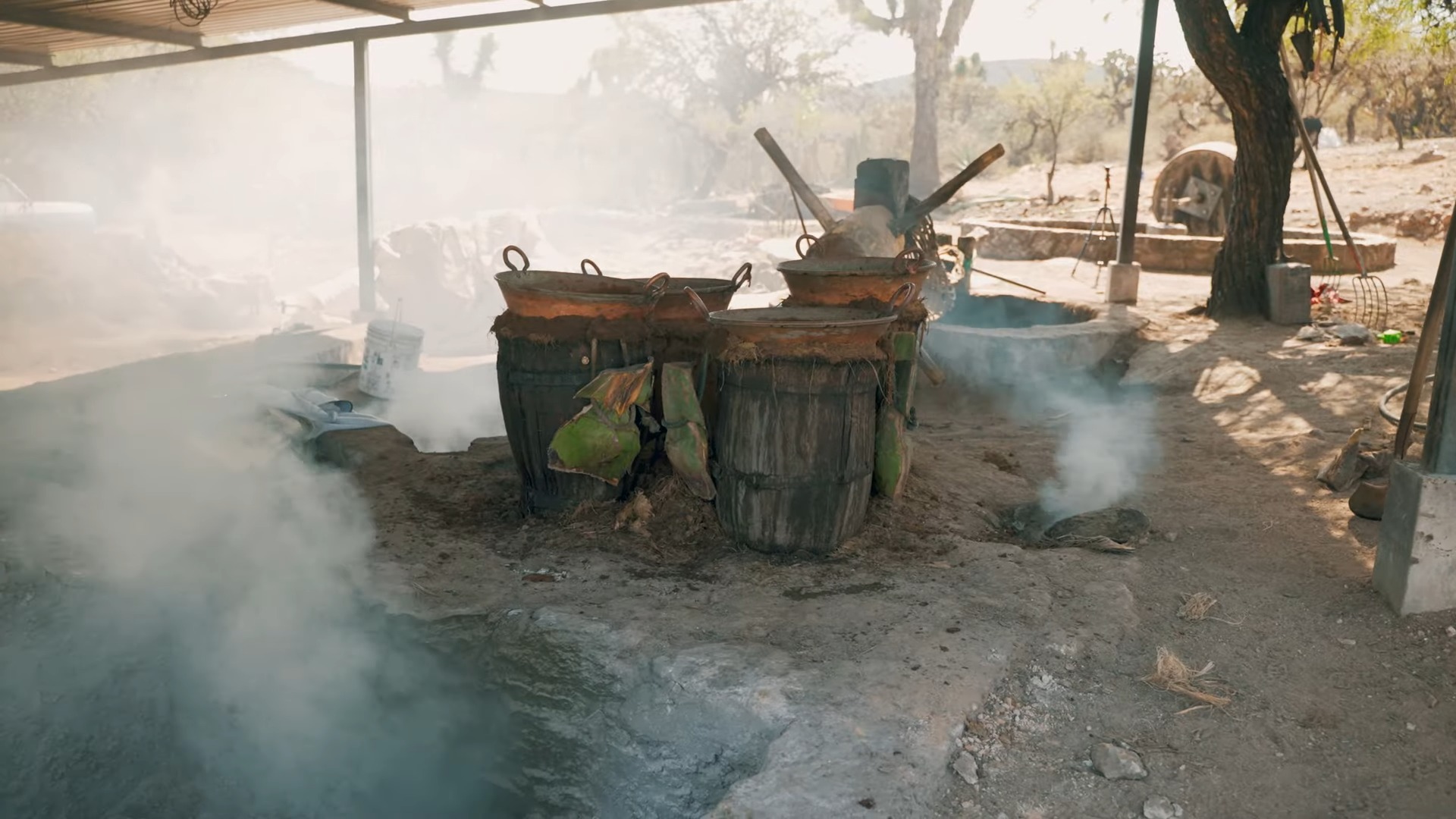Mezcal is a distilled alcoholic beverage made from agave plants, predominantly in Mexico. It is renowned for its rich, smoky flavor and deep cultural significance. It has been an important part of Mexican culture for centuries. Families have passed down methods of harvesting these plants and crafting this distinct spirit.
At its core, mezcal celebrates traditions while meeting the changing demands of the present.
Production varies greatly between small artisans and large factories. Let’s explore how these methods shape the character of three main types of this alcoholic drink.
Distinguishing Ancestral, Artesanal & Mezcal
While all three types originate from agave, their methods lead to distinctive outcomes:
- Ancestral: It is the most complex certification. Made with pit-cooked agave, hand or stone milling, and wood-fired clay-pot distillation only. Strictly traditional production methods define ancestral. This includes hand harvesting and processing agave, as well as exclusively using clay pot stills. The use of stainless steel is not allowed. The agave fibers are left in during distillation. The end result captures mezcal’s purest cultural essence.
- Artesanal: Mechanization plays a role alongside honored customs in artesanal. Modern tools augment some stages, like fermenting in wood, stone, or clay for a higher-quality product. Copper or steel stills combine old and new. Tradition meets progressiveness in flavor and technique in brands like Bozal.
- Mezcal: Efficiency defines the industrial approach for mezcal. Mass autoclave cooking and mechanical shredding/distilling maximize output. Stainless replaces natural materials. Consistency triumphs character for widespread access.
For instance, some mezcals undergo distillation in copper pots while others do in clay pots. The difference is evident in the taste; copper pots produce smoother types while clay pots produce earthier spirits.
In this way, each category tells a story – of technology, tradition preserved, and tradition personified. The path chosen reflects the priorities of both producer and patron alike. Unity remains in honoring agave at the heart of mezcal since ancient days.
But, the distinctions between these types of alcoholic drink are not just about production methods; they reflect the evolution of mezcal itself. Traditionally, it was made in small batches for local consumption, with methods passed down through families.
The rise in global popularity of mezcal has led to increased demand, prompting the development of industrial methods. The categorization helps preserve traditional practices, ensuring that the cultural heritage of mezcal remains intact.
How is mezcal different from tequila?
Technically, all tequila is mezcal. This term refers to spirits made from the agave plant, after harvesting, while tequila refers to a specific type of mezcal that can only be made from blue Weber agave in five Mexican states. Mezcal can be made from a wide variety of agave varieties in nine Mexican states.
Efficiency for a Global Market
“Mezcal” produced industrially aims to satisfy growing international demand. Massive cookers and machines quickly process agave. Stainless steel replaces wooden vats. Distilling in towers prioritizes output over nuanced flavors.
This modern approach ensures widespread availability but sacrifices tradition. Still, for casual sipping or cocktails, inexpensive consistency appeals to new drinkers.
Bridging Old and New
“Mezcal artesanal” balances heritage practices with some modern upgrades. Cookers emit earthy smoke into agave pits or ovens. Crushing may use mills, but stone wheels endure. Aged vats conduct natural fermentations. Copper or steel stills streamline ancestral techniques.
This category honors time-honored skills while accommodating modest enterprise – a compromise embracing change.
Traditional Version
“Mezcal ancestral” strictly observes age-old rituals. Ritual pit-cooking and hand-sorting nourish complex, intense tastes. Fermenting amongst agave fibers infuses complex nuance. Exclusively pot-distilling requires expertise but rewards those who sustain vanishing traditions. For devotees seeking a cultural artifact’s purest expression, this slow craft merits the patience.
Many indigenous communities still use mezcal in religious ceremonies to honor the gods and celebrate significant life events. May this provide helpful context to appreciate Mezcal’s diversity and the people who steward its past, present and future. Different methods cultivate varied experiences catering to all drinkers.
Conclusion
Mezcal is more than just a spirit; it is a cultural artifact that reflects the history and traditions of Mexico. The three main categories of this alcohol – mezcal, artesanal, and ancestral – offer distinct experiences rooted in their production methods.
From industrial techniques to ancient practices, each type of them presents its own unique qualities and flavors. By understanding these differences, consumers can better appreciate the craftsmanship and heritage behind each bottle. Whether you are a casual drinker or a dedicated enthusiast, there is a mezcal for every palate and occasion.



